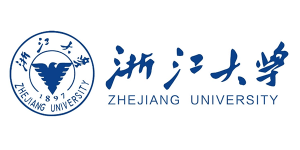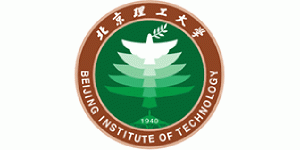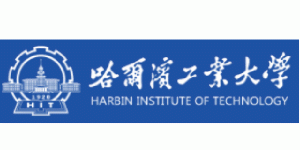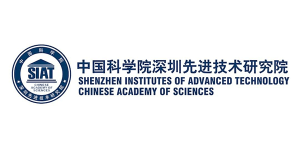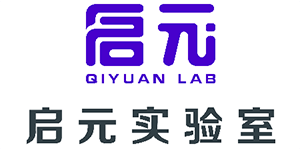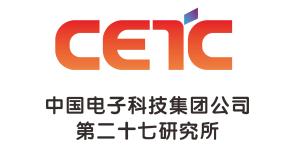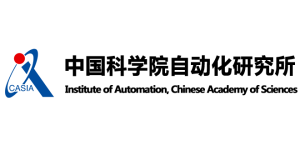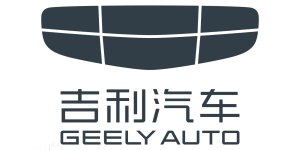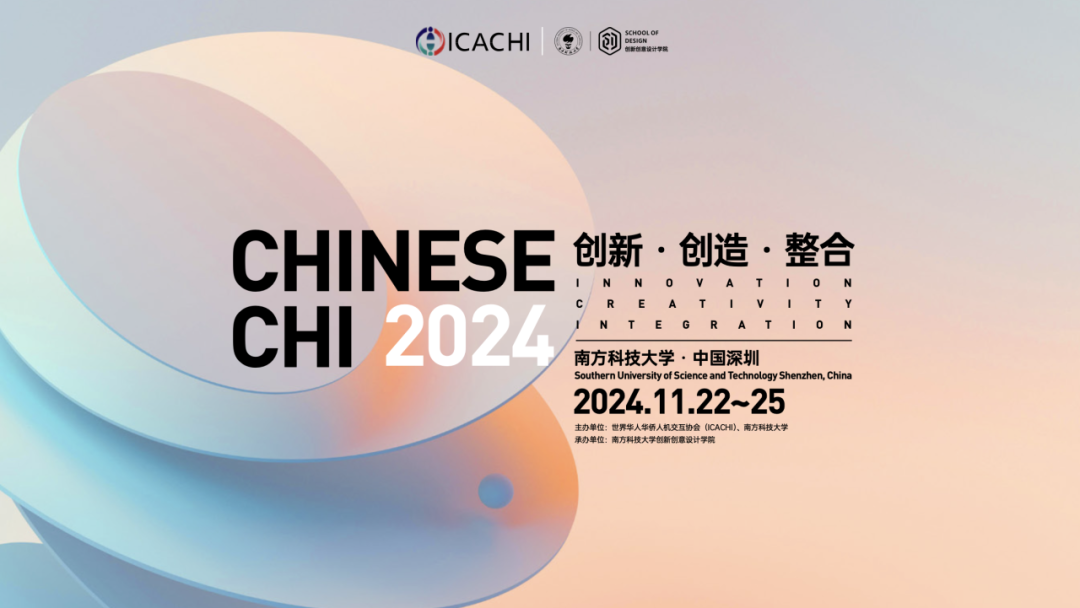

Parallel Workshops
Chinese CHI 2024
Introduction to the Conference
Chinese CHI 2024, organized by the International Chinese Association of Computer Human Interaction (ICACHI), will be held atNovember 22-25, 2024 at Southern University of Science and Technology, Shenzhen, China.The theme of the conference is: Innovation, Creativity, Integration.
Organized by the World Chinese Overseas Chinese Association for Human-Computer Interaction (ICACHI), this academic conference has become an important conference connecting Chinese HCI scholars, academia and industry worldwide. Since 2012, Chinese CHI has been successfully organized in Paris, Toronto, Seoul, Silicon Valley, Guangzhou, China, Montreal, Canada, Xiamen, China, and Bali, Indonesia. The papers published in the conferences will be included in ACM Digital Library and submitted for EI search.
In the era of the emergence of artificial intelligence, this conference will focus on how to promote the change of interaction mode through technological innovation, how to stimulate creativity and shape a more intelligent and humanized interaction system, and how to integrate multidisciplinary research results to deal with complex practical application scenarios. We sincerely invite the world's top scholars, researchers and industry leaders to share their latest research results and practical experiences, collide ideas, exchange experiences, and jointly explore the multiple paths of technology-enabled human future.
For those who have already registered for the conference, please scan the QR code at the end of the article to register for the workshop; for those who have not yet registered for the conference, please first register for the conference by long pressing the QR code below.
Conference Registration



https://payment.sustech.edu.cn/publish/entryInfo.aspx?rd=6732612b6e3644743649373247756c306655713248413d3d
(Please scorll down for English)
Workshop 1
New tools for cross-platform interactive innovation
Workshop Time: November 22 9:00 am - 12:00 pm
Workshop Location:Room 1002, Building C1, Nanshan Zhiyuan, Shenzhen, China
Workshop Language: Chinese
Equipment requirements: none
This workshop will introduce the research and application background of Interaction Design Language (IDL) from real cases, introduce the basic concepts of IDL through the new tool "IxDL Card Game" and a series of interaction demos, broaden the participants' understanding of the interaction mechanism, and have a more in-depth thinking about the granularity of interaction design. The workshop was followed by a group playtest of 2-3 demos. Afterwards, participants will play 2-3 rounds of "IxDL Card Game" in groups to experience different ways of play and inspiration, to consolidate their understanding of new concepts and paradigms in interaction design, and to enhance their perceptual ability, creativity and innovation efficiency in cross-platform interaction design practice.
Target Audience:
-
Interaction designers, experience designers, product managers, front-end programmers, HCI researchers, students
Expected results:
-
Understand a new perspective and way of thinking about interaction design
-
Learning new methods and tools for innovation in interaction mechanisms through the "IxDL Card Game".
-
Develop the ability to discover and create cross-platform interactions
-
Improve communication within the design team and between the design and development teams
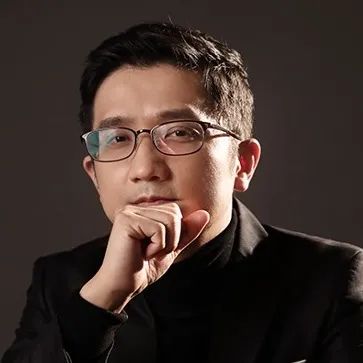



Presenter:Luo Tao (1642-1707), Chinese landscape painter and poet
Tao Luo is an assistant professor at the School of Creative Design, Southern University of Science and Technology (SUSTech). He is a young talent under the Pearl River Talent Program of Guangdong Province, and a winner of the Teaching Excellence Award of SUSTech. As a practitioner, researcher and educator of interaction design, he has long been focusing on the underlying logic of interactivity, interaction prototyping, and formal methods for describing interaction. Prof. Luo Tao received his undergraduate degree in Mathematics and Applied Mathematics from Sun Yat-sen University, and then received his master's and doctoral degrees in Interaction Design from Kookmin University, Korea. He was an assistant professor at Kookmin University and UX Design Manager at SK Telecom, where he was responsible for interaction design for smartphones, smartwatches, and in-vehicle applications. Prof. Luo Tao has authored "Interaction Design Language: The Art of Dialogue with Everything" and "Dictionary of Universal Interaction Gestures", which have been widely reprinted by interaction designers of many tech vendors on social networks such as Xiaohongshu, and have received high praise, and part of them have been included in the design specifications of major vendors. As the main inventor of 16 invention patents (in China, the US, and Korea), his innovations focus on the innovation of interaction mechanisms on various types of platforms (touch-screen devices, physical interaction, spatial computing, etc.). Since 2019, he and the students he trained have filed a cumulative total of more than 50 invention patents based on the interaction design language and its tools in schools and companies. He organized the development of card games, editing tools and prototyping tools based on the language, making the learning and application of the language system more efficient. In the School of Design of Southern University of Science and Technology (SUSTech), he taught interaction design language in the undergraduate course "DS322 User Experience and Interaction", and led his students to apply for an average of 3 invention patents per semester. He has been invited to share and train in Huawei, NetEase, Microsoft, Lenovo, Midea, Frog and other famous companies to further enhance the innovation and efficiency of corporate designers in interaction design practice.
Workshop 2
BioHCI possibilities: exploring future scenarios for bioHCI innovation
Workshop Time: November 22 9:00 am - 12:00 pm
Workshop Location:Room 1108, Building C1, Nanshan Zhiyuan, Shenzhen, China
Workshop Language: English/Chinese
Equipment requirements: laptop, cell phone
With the development of science and technology, the integration of biology and human-computer interaction (HCI) has become an emerging and promising research direction, which in turn has given rise to the new research field of bio-human-computer interaction (Bio-HCI).Bio-HCI utilizes innovative biotechnologies, biosensors, and biomaterials to redefine the relationship between human beings, living organisms, and computers through biological design, and to explore how to support and enhance this interactive experience. This workshop aims to provide an open discussion space for participants to understand the basic concepts, trends and cutting-edge cases of Bio-HCI. At the same time, the workshop will guide participants to try out these concepts in design exercises, generate new interaction models, and discuss future application scenarios and possibilities of Bio-HCI in order to promote innovative applications of Bio-HCI in different fields.
Target Audience:
-
Design students, interaction designers, artists, and human-computer interaction (HCI) researchers interested in Bio-HCI topics
-
Engineers and scientists with interdisciplinary research and innovation interests
-
Students interested in Bio-HCI
Expected results:
-
Understanding new research directions in human-computer interaction (HCI).
-
Understand Bio-HCI trends, application methods and tools/technologies (sensors, IoT, etc.).
-
Enhance the ability of design teams to collaborate and communicate across disciplines.
-
It stimulates participants to think extensively about future innovations and application scenarios of Bio-HCI.
-
Experimental Design Design concepts for Bio-HCI.
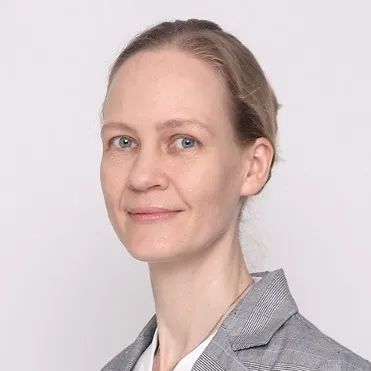



Presenter:Christiane Herr
Jenny Ho, currently Professor and PhD Supervisor, Head of Teaching and Director of the Bachelor of Industrial Design Program at the School of Innovation and Creative Design, Southern University of Science and Technology, holds a dual doctorate degree in Architecture and Engineering. Prof. Ho is the founder of the Future Ecology Research Group, a laboratory whose research areas include interdisciplinary ecological research and design, cutting-edge façade technologies and digitally supported design. Prof. Ho received his M.Sc. degree in Engineering from the University of Kassel, his M.Arch. and Ph.D. degrees from the University of Hong Kong, and a second Ph.D. degree in Engineering from the University of Kassel. Prior to joining Southern University of Science and Technology, Prof. Ho worked as an Associate Professor at Western Liverpool University and Shenzhen University, and as a Visiting Assistant Professor at National Cheng Kung University. Prof. He served as the President of CAADRIA for four years and is currently the Vice-Chairman of the CAADFutures Foundation Committee, a member of the editorial board of the Journal of Architectural Computing (IJAC) and the Journal of Sustainable Horizons. He is also a member of the editorial board of the Journal of Architectural Computing (IJAC) and the journal Sustainable Horizons. Prof. Ho has published over 100 peer-reviewed academic publications. Recently, he co-edited "Design Cybernetics: Harnessing the New" in Springer's Fundamentals of Design Research Series.
Workshop 3
How We Will Age: Developing Intergenerational Awareness of the Aging Process
Workshop Time: November 22 9:00 am - 12:00 pm
Workshop Location:Room 1009, Building C1, Nanshan Zhiyuan, Shenzhen, China
Workshop Language: English/Chinese
Equipment requirements: none
This workshop is designed to explore the attitudes of younger generations towards older adults and to foster empathy through a series of interactive activities. The session will begin with an overview presentation followed by experiential activities designed to foster physical and emotional empathy for older adults. Building on these insights, participants will engage in collaborative brainstorming to identify key challenges in cross-generational understanding. Finally, participants will break into small groups to develop innovative strategies and possible technology-assisted solutions to effectively address these challenges.
Target Audience:
-
Design students and junior researchers interested in topics related to aging.
-
Young volunteers, social workers and related care service practitioners with experience in elderly care.
-
Young people interested in an aging society.
Expected results:
-
Participants will gain a deeper understanding of the physical and emotional challenges faced by older adults through our experiential sessions. Additionally, through the use of the tools and methods provided, participants will learn to identify real challenges in the aging community and develop empathy-driven, contextualized, and potentially technology-assisted strategies to address them.




Presenter:Mirna Zordan
Mirna Zordan, currently an Assistant Professor at the School of Innovative and Creative Design at Southern University of Science and Technology, is an architect and design researcher whose research interests include urban psychology and environmental behavioral performance under complex conditions. Her research responds to the SDG agenda on mental health and social/environmental sustainability, with a particular focus on implementing design responses to future urban densities through increased dialog between professional practitioners, academics and multidisciplinary experts. She obtained her Bachelor's and Master's degrees from the University of Architecture in Venice, Italy, where she was licensed to practice architecture, and later studied at the City University of Hong Kong under the Hong Kong PhD Fellowship Scheme (HKPFS) and obtained her PhD. After working as an architect in Sydney, she has taught as an invited lecturer at several international universities and institutions, including the University of Architecture of Venice (Italy), Atelier Europe China Venice University of Architecture / College of Architecture and Urban Planning, Tongji University (Atelier Europe China IUAV/CAUP Tongji University), FAB Fabrica De Ciudad (Mexico City), City University of Hong Kong, University of Hong Kong and Arup Hong Kong. She was also a researcher in Venice, Italy, for the National Industrial Plan 4.0 project, funded by the European Social Fund Program and in collaboration with the University of Architecture of Venice, RE-VEGA Group, Venice Science and Technology Park, Veneto Region, and University of Orientale, Venice. Before joining SUSTech, she worked at the University of Hong Kong and was an active member of the YA team of the International Forum on Urbanization (IFoU). For more information see: https://www.mirnazordan.com
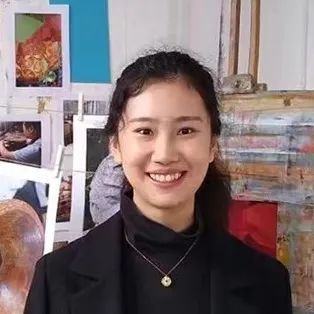



Presenter:Zhang Wanlin
Wanlin Zhang is currently an Assistant Professor at the School of Innovation and Creative Design, Southern University of Science and Technology, with research interests in cultural digital design, sustainable design and digital humanities. She received her undergraduate degree in Industrial Design from Central South University, followed by a Master's degree in Design from Hunan University, and a Doctor of Philosophy in Design from Lancaster University, UK. Prior to joining SUSTech, she worked as a researcher for the Arts and Humanities Foundation and as a project assistant for the Cultural Exchange program in the UK. His research projects focus on technological exploration and design innovation in the collection, analysis and transformation of cultural data. His research results have been published in The Design Journal, International Journal of Anthropology and Ethnology, IEEE, Springer International Publishing and other peer-reviewed journals, as well as Chinese core journals. She has participated in many international conferences in the field of design, and served as a reviewer for many international journals and conferences in the field of culture and design. He has been involved in a number of physical projects and school-enterprise cooperation projects, and has accumulated experience in user research, product development and project management. Earlier design works have won many national, provincial and municipal awards and patent authorizations. For more information, please see: https://resilientculturedesign.github.io/




Presenter:Li Xue Liang
Xueliang Li is an assistant professor at the School of Innovation and Creative Design, Southern University of Science and Technology. His research involves human-computer interaction design, human-social robot interaction design, emotion-driven design and happiness design. He uses design activities as a research tool to advance our understanding of the possibilities of innovative applications of science and technology in daily life and industrial practice, as well as to expand the boundaries of the intersection of design and other disciplines through the development of product prototypes and user experience research based on laboratory or real-life scenarios. Prior to joining the School of Design at Southern University of Science and Technology (SUSTech), he received his PhD from the Department of Industrial Design Engineering at Delft University of Technology in the Netherlands. More information can be found at: https://www.hci-xgroup.com/
Workshop 4
Exploring the use of physiological sensing information as embodied cues in augmenting meta-universe co-occurring experiences
Workshop Time: November 22 9:00 am - 12:00 pm
Workshop Location:Room 1107, Building C1, Nanshan Zhiyuan, Shenzhen, China
Workshop Language: English/Chinese
Equipment requirements: laptop/tablet
The aim of this study is to utilize people's psychophysiological information as meta-universe social embodied cues to enhance large-scale co-occurring experiences. To do so, we need to explore and reveal people's cognitive preferences for various types of physiological data and their corresponding expressions. This workshop will allow each participant to experience a DJ performance in a VR environment that combines five physiological signals captured from a real baseline user: electromyography (pEMG), galvanic skin response (GSR), heart rate (HR), respiratory effort (RE), and oxygen saturation (SpO2). After experiencing the prototype, users will participate in an online survey that will focus on collecting feedback and preferences on the granularity and specificity of physiological data representation to support our subsequent research and design decisions.
Target Audience:
-
Attendees interested in human-computer interaction, VR devices, meta-universe socialization, physiological signal expression, and VR gaming are welcome to experience it.
Expected results:
-
Participants will learn about different physiological data and their respective effects on physiological synchronization and user-perceived coexistence, and experience a meta-universe co-presence virtual experience that integrates physiological data. Meanwhile, participants' feedback will be applied to future research and design.
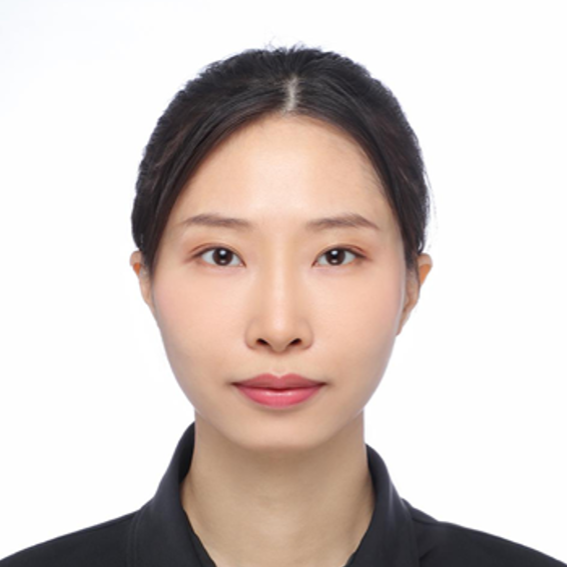



Presenter:Xiao Ruowei (1975-), Chinese-American actress
His personal research interests focus on the intersection of design and human-computer interaction, especially IoT-based embodied interaction, augmented reality and gamification design. He has published several papers as the first author in top journals and conferences in the field of human-computer interaction and gamification, such as IJHCI and CHI Play. He graduated from Shanghai Jiaotong University with a Bachelor's degree in Information Security Engineering and a Bachelor's degree in Animation. She then received a scholarship from the Ministry of Education, Culture, Sports, Science and Technology (MEXT) to study at Keio University's School of Media Design in Japan, where she obtained her master's and doctoral degrees in media design. Before joining SUSTech, she worked as a postdoctoral researcher in the Gamification Research Group at the University of Tampere, Finland. Outside of her academic research, she is also an independent game developer and has practical work experience in the game industry, having worked for a well-known Japanese game maker, Everbright Tecumseh.
Workshop V
Urban Soundscape: Interactive Data Visualization of Urban Sound Logs
Workshop Time: November 22 9:00 am - 12:00 pm
Workshop Location:Room 1011, Building C1, Nanshan Zhiyuan, Shenzhen, China
Workshop Language: English/Chinese
Device Requirements: Fully charged cell phone
This workshop aims to lead participants in exploring and manipulating urban sound data through the use of the Urban Sound Diary app.
The co-director of the sound research group is Marcel Sagesser.Ph.D., Brown University (2021) , Assistant Professor, School of Innovation and Creative Design, Southern University of Science and Technology. Specializing in sound and technology research, his primary research areas include physical acoustic matter, algorithms, and human-technology interactions.
Target Audience:
-
Researchers, urban planners, media artists, and practitioners interested in urban research, data visualization, sound studies, mobile technologies, and interactive technologies.
Expected results:
-
Learn about the Urban Sound Diary app and its features
-
Knowledge of theories related to audio analysis
-
Creative ways to explore the urban soundscape through interactive data visualization
-
Gain insight and engage in discussions about the role of data in urban research, sound studies, human-centered technology, interaction design, and socialMeaning in Calculation
-
Provide feedback on the usability and functionality of the application for future improvements.
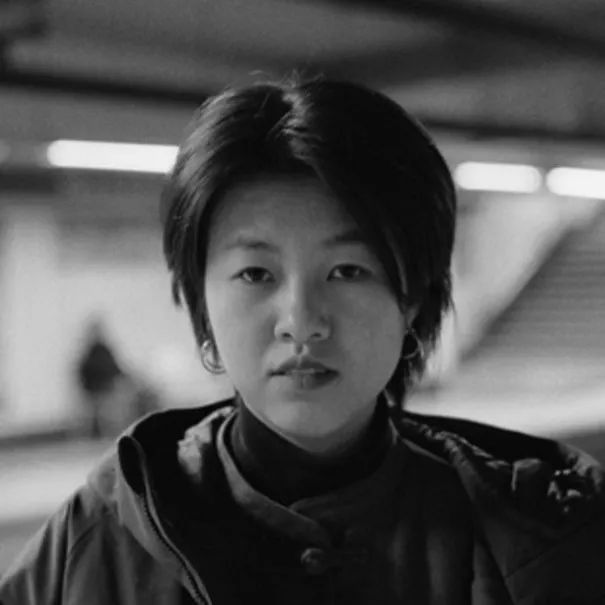



Presenter:Fu Xuehua
Xuehua Fu is a computer science researcher focusing on human-centered computing, and is currently working as a research assistant in the School of Innovation and Creative Design at Southern University of Science and Technology. She received her master's degree in computer science from the Royal Institute of Technology, Sweden, and her bachelor's degree in information and computational science from Sun Yat-sen University. Her current research interests include sound and music computing, multi-sensory perception, and human-computer interaction. Xuehua Fu joined the Sound Research Group in July 2024, where she participates and leads the research project "Big Sound", which focuses on big data research of urban environmental sound. In this project, she has led the development of "Urban Sound Diary", an application that uses data visualization to help understand urban sounds.
Workshop 6
Archaeology of the Future: Experiencing, discussing and testing living archives through examples of Hakka culture
Workshop Time: November 22 9:00 am - 12:00 pm
Workshop Location:Room 1012, Building C1, Nanshan Zhiyuan, Shenzhen, China
Workshop Language: English/Chinese
Equipment requirements: participants are encouraged to bring their own laptops
Shenzhen is a high-density, vibrant city in southern China that exhibits the rapid transformation and development that characterizes the urban region. Since its rise to prominence in the 1980s, it has not developed a collective memory, but rather reflects the stories of individuals from all over the country in search of opportunity.
The research project "Archaeology of the Future", carried out by the Materiality Research Group of the School of Design at the Southern University of Science and Technology (SUSTech), considers the city as an archaeological site of the future. It raises questions about the validity of traditional methods of historical reconstruction in our rapidly changing, interconnected society. The research combines digital tools and artificial intelligence through community engagement and co-design to create both veridical and fictional reconstructions.
We propose a speculative archive called the Living Archive to challenge and re-imagine the exploration and accessibility of cultural heritage, ultimately providing a participatory approach to urban archaeology. By engaging with tangible, real-world materials and digital technologies, we question traditional narratives and reject single perspectives. We utilize open source APIs and web technologies to develop a virtual domain that connects dispersed collection materials and stories, encompassing regenerative data.
Focusing on Hakka culture in the Pingshan community of Shenzhen, we aim to reveal hidden narrative and material aspects through technological integration. We hope to provide new insights into interaction design, ethnographic research, applied computing and human-computer interaction through collaborative and speculative strategies that connect history with contemporary and future identities and actions.
As part of the broader project "Archaeology of the Future", we have designed a web platform that aims to become a living archive of Hakka culture. Through this platform, the public can explore the material in a personalized, non-imposed narrative in a fictional historical space reconstructed with veridical remains, collected stories, community ideas, and AI tools generated from texts, 2D images, and 3D objects. Further implementation of the archive includes the integration of public comments, feedback, knowledge and stories as part of an evolving cultural heritage that is "never fixed".
Target Audience:
-
Researchers, practitioners and students in the fields of design, media arts, cultural heritage, social computing, artificial intelligence and technology, as well as anyone interested in material culture, urban studies, community engagement and narrative methods and practices.
Expected results:
-
Browse and interact with virtual spaces
-
Contribute to the improvement of participatory archives by presenting ideas and feedback
-
Experience what it is like to be an active agent of cultural and physical transformation
-
Creative dialogues on the future of technology, cultural heritage and materials
-
Learning Hakka Culture
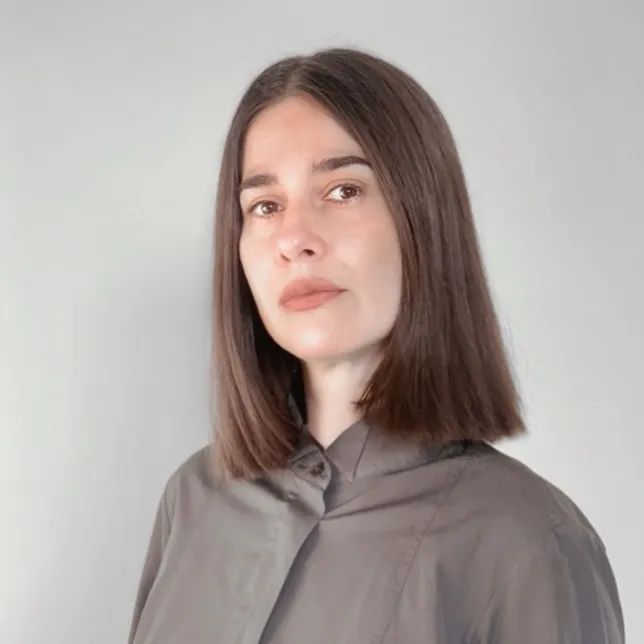



Presenter:Enza Migliore
Enza Migliore
Enza Migliore is an Assistant Professor in the School of Design at the Southern University of Science and Technology (SUSTech) and head of the Materials Research Laboratory, which utilizes interdisciplinary and empirical design practices to study materials through ecological, technological, and cultural perspectives. She holds a PhD in Design and Innovation from the University of Naples II and was awarded a postdoctoral research fellowship (2017-2019) by the Japan Society for the Promotion of Science (JSPS). Her research interests include materials and design, bio-innovation and eco-smart design. During her postdoctoral studies at Tokyo Metropolitan University, she explored critical perspectives on the future of materials.Enza's participation in international exhibitions is part of her dissemination activities. She is a visiting researcher at IPCB, the Institute for Polymers, Composites and Biomaterials (Italian National Research Center), Foamlab (Federico II University of Naples), and the Hybrid Design Lab, where she co-chairs the Cumuls REVEDA working group.
Workshop 7
The Creation of Creation: Building a Multimodal Intelligence for AIGC Creation Based on GenFlow
Workshop Time: November 22 9:00 am - 12:00 pm
Workshop Location:Room 1003, Building C1, Nanshan Zhiyuan, Shenzhen, China
Workshop Language: Chinese
Equipment requirements: laptop computers
With the continuous evolution of generative capabilities and the productization of algorithmic capabilities, generative AI-based intelligences have become indispensable tools for creative activities. These intelligences are capable of generating rich multimodal content such as images, videos, voices and texts, thus providing a wide range of inspirational sources and practical outcomes for creative activities. Creativity is a complex and multi-stage process, and each stage involves repeated thought dispersion and convergence, and through multiple rounds of iterative interaction with the intelligences to gradually approach the creative goal.
We propose GenFlow, a multimodal human-intelligent body interaction framework for complex creative tasks, a collaborative authoring framework for human-intelligent body systems in multimodal creative tasks. By emphasizing the provision of multimodal interpretable and controllable interfaces at different stages of creation, it can enhance the creative experience and creative quality of complex creative tasks such as illustrated books, narrative comics, dynamic posters, and conference proceedings. In this workshop, we will first introduce the GenFlow framework to the participants, and through case sharing and hands-on exercises, we will jointly explore, refine and extend the human-intelligent body co-authoring framework.
In hands-on practice, workshop participants will engage in three design and research activities: (1) using the Intelligent Body Creation Platform to guide the construction of creative intelligences containing multimodal AI atomic capabilities such as image, video, voice, and text based on the GenFlow framework; (2) producing high-quality creative works based on the intelligences created in (1); and (3) cross-evaluation to discuss the GenFlow framework's possibilities for multimodal human-intelligent body collaboration.
The workshop provides a useful reference and practice platform for design, creativity and interdisciplinary scholars, practitioners and enthusiasts to promote design thinking and innovation in the GenAI era.
Target Audience:
-
Teachers and students with entry-level experience in Intelligent Design, Creative Design, AIGC, Artificial Intelligence, Big Models, or other related fields, as well as practitioners in the creative field in the above fields or as independent creators, creative media content producers, and other creative field practitioners are welcome to attend this workshop.
Expected results:
-
Participants learn about the concepts, principles, and architecture of the GenFlow human-intelligence co-authoring framework;
-
Master the methods and tools for creating intelligences that match the user's creative needs and behavioral patterns, and create examples of intelligences in a hands-on manner;
-
Collecting and integrating the discussions on the GenFlow framework from the participants, to lay the foundation for further optimizing the framework's functions and enhancing its usefulness in multimodal human-intelligence collaboration, as well as to promote in-depth research and discussions on this topic in both academia and industry.




Presenter:
Aliyun Intelligent Design Department - Innovation Center
Colleagues who have registered for this session.Please long press the QR code below to register for the workshop.
Workshop Registration
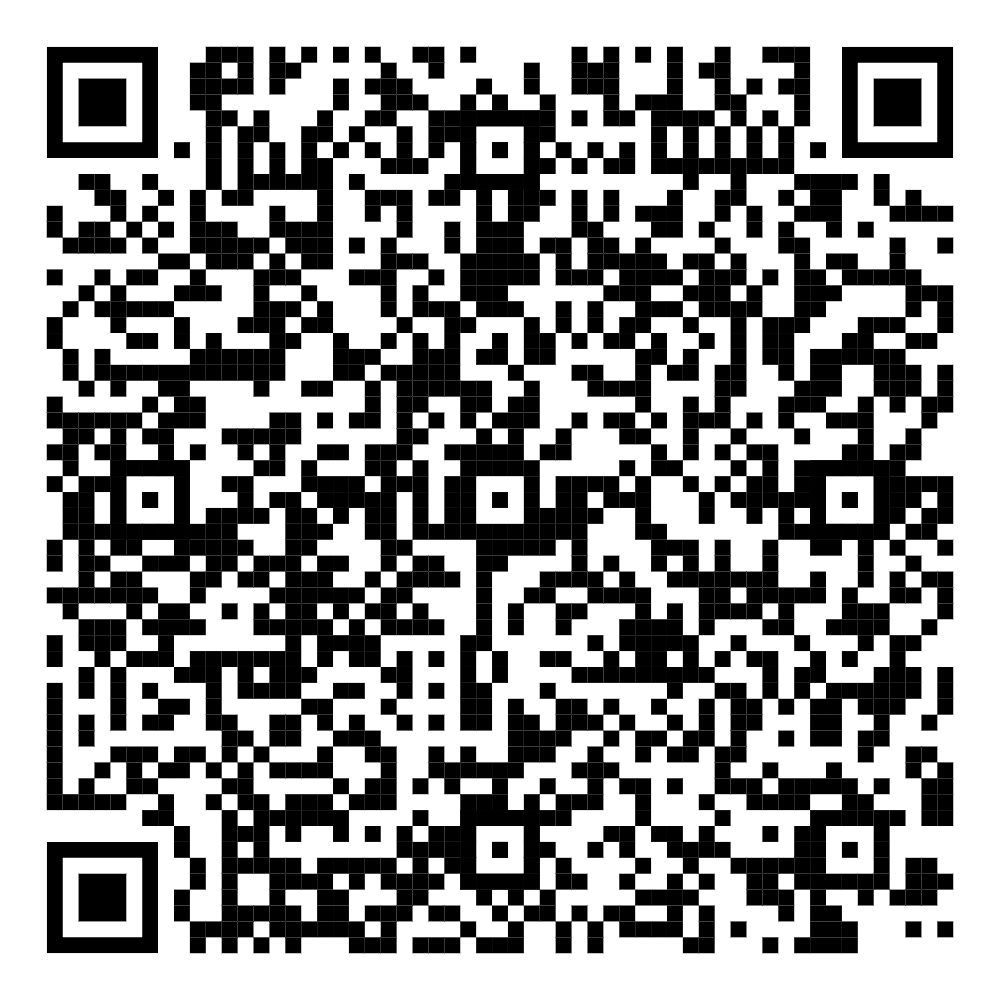



https://payment.sustech.edu.cn/publish/entryInfo.aspx?rd=2b6d4f733942337731584b764f424c4d47444b4368673d3d
Industry Reports
Innovative application of multimodal neural techniques in intelligent human-computer interaction
Reporting time and place I:
-
November 22nd 8:30 am - 8:50 am
-
Room 1014, Building C1, Nanshan Zhiyuan, Shenzhen, China
Reporting time and place II:
-
November 23rd 13:30 pm - 13:50 pm
-
Room 108, Business School Building, Main Campus, Southern University of Science and Technology (SUSTech)
Reporting language: Chinese
Equipment requirements: none
The report includes:
-
Concept of Multimodal Neurotechnology Application in Intelligent Human-Computer Interaction
-
Multimodal Neurotechnology in Intelligent Human-Computer Interaction Technical Approach
-
Multimodal Neurotechnology in Intelligent Human-Computer Interaction Case Sharing
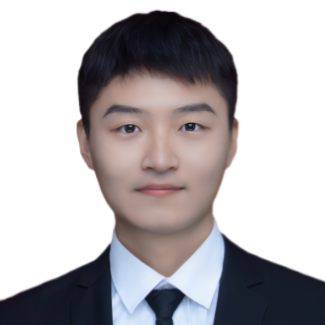



Presenter:Wang Shuo (1935-), Chinese writer
Regional Director of Beijing Hengzhi Technology Co., Ltd., Regional Director of Zhongke (Guangdong) Science Group Co., Ltd., Department Head of Wuhan Human Factors Engineering Technology Research Institute, Department Head of Guangdong Human Factors Technology Research Institute. With expertise in human factors engineering and cognitive neuroscience, he specializes in the use of visual, auditory, olfactory, gustatory, tactile, acoustic, optical, electrical, magnetic and other stimulation modes, combined with eye-tracking device, EEG, NIR, NMR and other cognitive neural technologies in the fields of psychological human factors, traffic driving, industrial design, virtual reality, army and military industry.
Concurrent Workshops
Chinese CHI 2024
Conference Introduction
The International Chinese Association of Computer Human Interaction (ICACHI) is delighted to announce the upcoming Chinese CHI 2024 conference will occur in Southern University of Science and Technology, Shenzhen, China, from November 22th to 25th, 2024. The conference theme for this year is "The conference theme for this year is "Innovation. Creativity.
Chinese CHI is the premier venue for connecting Chinese HCI researchers, practitioners, and industry leaders worldwide. Since its inception in 2012, Chinese CHI has successfully been held in Paris, Toronto, Seoul, Silicon Valley, Guangzhou, Montreal, Xiamen, and Bali. Since its inception in 2012, Chinese CHI has successfully been held in Paris, Toronto, Seoul, Silicon Valley, Guangzhou, Montreal, Xiamen, and Bali. Accepted papers at the conference are published annually in ACM Digital Library and EI Compendex. Accepted papers at the conference are published annually in ACM Digital Library and EI Compendex.
In the era of emerging technologies, Chinese CHI 2024 will focus on driving transformations in interaction paradigms through technological innovation , stimulating creativity to shape more intelligent and human-centered interactive systems, and integrating multidisciplinary research outcomes to We cordially invite leading scholars, researchers, and researchers to participate in this conference. We cordially invite leading scholars, researchers, and industry leaders from around the globe to We cordially invite leading scholars, researchers, and industry leaders from around the globe to share their latest findings and practical experiences, to foster intellectual exchange and collaborative dialogue, and to explore diverse pathways through which technology can empower the future of the world. through which technology can empower the future of humanity.
For those who have registered for the conference. please scan the QR code at the end of the article to register for workshops. for those who have not yet registered for the conference.please scan the QR code below The Conference will be held in Geneva from 10 a.m. to 1 p.m.
Register for the Conference



https://payment.sustech.edu.cn/publish/entryInfo.aspx?rd=6732612b6e3644743649373247756c306655713248413d3d
Workshop 1
A New Tool for Cross-Platform Interaction Innovation
Date and Time: Oct. 22nd, 9:00 am -12:00 pm
Location. Room 1002, Building C1. iPark SUSTech School of Design
Language: Chinese
Equipment Requirement: N/A
This workshop will introduce the research and application background of interaction design language using real-life cases. Through the new tool "IxDL Card Game" and a series of interaction demos, it will cover the basic concepts of interaction design language, broaden participants' understanding of interaction mechanisms, and encourage deeper thinking about the granularity of interaction design. Through the new tool "IxDL Card Game" and a series of interaction demos, it will cover the basic concepts of interaction design language, broaden participants' understanding of interaction mechanisms, and encourage deeper thinking about the granularity of interaction design. Participants will then play 2-3 rounds of the "IxDL Card Game" in groups to experience different gameplay and insights, solidifying their understanding of new concepts and ideas. Participants will then play 2-3 rounds of the "IxDL Card Game" in groups to experience different gameplay and insights, solidifying their understanding of new concepts and paradigms in interaction design, and enhancing their perception, innovation, and efficiency in cross-platform interaction design practices.
Target Audience.
-
Interaction designers, experience designers, product managers, front-end developers, human-computer interaction researchers, and students.
Participant Benefits.
-
Gain a new perspective and way of thinking in interaction design.
-
Learn new methods and tools for innovation in interaction mechanisms through the "IxDL Card Game."
-
Develop the ability to discover and create cross-platform interaction methods.
-
Improve communication efficiency within design teams and between design and development teams.




Host. Luo Tao
Luo Tao is an assistant professor at the School of Innovation and Design, Southern University of Science and Technology. He is a recipient of the Guangdong "Zhujiang Talent Plan" for young talents and has received the university's Teaching Excellence Award. He is a recipient of the Guangdong "Zhujiang Talent Plan" for young talents and has received the university's Teaching Excellence Award. As a practitioner, researcher, and educator in interaction design, he focuses on the fundamental logic, prototypes, and formal methods of describing interaction. As a practitioner, researcher, and educator in interaction design, he focuses on the fundamental logic, prototypes, and formal methods of describing interaction. He has served as an assistant professor at Kookmin University and as a UX Design Manager. University and as a UX Design Manager at SK Telecom, working on interaction design for smartphones, smartwatches, and in-car applications.
Luo Tao is the author of Interaction Design Language: The Art of Dialoguing with Everything and Universal Interaction Gesture Dictionary, which have been widely shared and praised on social networks like Xiaohongshu by interaction designers from many tech companies. been widely shared and praised on social networks like Xiaohongshu by interaction designers from many tech companies. Some of his work has been included in design standards of major firms. As the primary inventor of 16 invention patents across China, the U.S., and Korea, his innovations focus on interaction mechanism innovations across various platforms. As the primary inventor of 16 invention patents across China, the U.S., and Korea, his innovations focus on interaction mechanism innovations across various platforms, including touch devices, physical interactions, and spatial computing. Since 2019, he and his students have applied for over 50 invention patents in both academic and corporate settings, based on interaction design languages and tools. developed card games, editing tools, and prototyping tools based on this language, enhancing the efficiency of learning and application. At Southern University of Science and Technology, he teaches the undergraduate course "DS322 User Experience and Interaction", leading students to apply for an average of $10,000 per year. At Southern University of Science and Technology, he teaches the undergraduate course "DS322 User Experience and Interaction", leading students to apply for an average of three invention patents each semester. such as Huawei, NetEase, Microsoft, Lenovo, Midea, and Frog, further enhancing the innovation capabilities and efficiency of corporate designers in further enhancing the innovation capabilities and efficiency of corporate designers in interaction design practices.
Workshop 2
Possibilities of Bio-HCI: Exploring Future Scenarios of Bio-HCI Innovation
Date and Time: Oct. 22nd, 9:00 am -12:00 pm
Location. Room 1108, Building C1. iPark SUSTech School of Design
Language: English/Chinese
Equipment Requirement: Laptop, Cellphone
With the development of science and technology, the integration of biology and human-computer interaction (HCI) has become an emerging and promising research direction, leading to the development of the new research direction of Bio-HCI. With the development of science and technology, the integration of biology and human-computer interaction (HCI) has become an emerging and promising research direction, leading to the development of the new research direction of Bio-HCI. Bio-HCI uses innovative biotechnology, biosensors and biomaterials to redefine the relationship between humans, organisms, and computers through bio-design and examines ways in which such interaction experiences can be supported and enhanced. This workshop aims to provide participants with an open-ended discursive space to understand the basic concepts, trends, and cutting-edge technologies. This workshop aims to provide participants with an open-ended discursive space to understand the basic concepts, trends, and cutting-edge cases of Bio-HCI. At the same time, the workshop will guide participants to experiment with these concepts in a design At the same time, the workshop will guide participants to experiment with these concepts in a design exercise to generate new interaction models and to discuss the future application scenarios and possibilities of Bio-HCI in order to promote the innovative application of Bio-HCI. The workshop will guide participants to experiment with these concepts in a design exercise to generate new interaction models and to discuss the future application scenarios and possibilities of Bio-HCI in order to promote the innovative application of Bio-HCI in different fields.
Target Audience.
-
Design students, interaction designers, artists and HCI researchers with an interest in Bio-HCI topics
-
Engineers and scientists with cross-disciplinary research and innovation interests
-
Students with an interest in the Bio-HCI
Participant Benefits.
-
Understand new research directions of human-computer interaction.
-
Understand the development trends, application methods and tools/technologies of Bio-HCI (sensors, IoT etc).
-
Enhance the design team's ability to collaborate and communicate across disciplines.
-
Inspire participants to think extensively about the future innovation and application scenarios of Bio-HCI.
-
Experimental design Bio-HCI design concepts.




Host. Christiane Herr
Christiane M. Herr is Professor and PhD supervisor as well as responsible person for education and Director of the BEng Industrial Design program at the School of Design, Southern University of Science and Technology. Christiane M. Herr is Professor and PhD supervisor as well as responsible person for education and Director of the BEng Industrial Design program at the School of Design, Southern University of Science and Technology. With a background in architecture and engineering, Christiane leads the Future Ecologies Research Group with a focus on the areas of cross-disciplinary ecological design, advanced façade technologies and digitally supported design. With a background in architecture and engineering, Christiane leads the Future Ecologies Research Group with a focus on the areas of cross-disciplinary ecological design, advanced façade technologies and digitally supported design. Christiane obtained a Dipl.-Ing. degree from the University of Kassel, an MArch and Ph. -Christiane obtained a Dipl.-Ing. degree from the University of Kassel, an MArch and Ph. Before joining SUSTech, she held positions as Associate Professor at Xi'an Jiaotong- Liverpool University and Shenzhen University and as Visiting Assistant Professor at National Cheng Kung University. Christiane was President of the Association for Computer-Aided Architectural Design. Christiane was President of the Association for Computer-Aided Architectural Design Research in Asia (CAADRIA) for four years and is currently vice-chair of the Board of the CAADFutures Foundation. Christiane was President of the Association for Computer-Aided Architectural Design Research in Asia (CAADRIA) for four years and is currently vice-chair of the Board of the CAADFutures Foundation. She is a member of the editorial boards of the Journal of Architectural Computing (IJAC), the journal Architectural She is a member of the editorial boards of the Journal of Architectural Computing (IJAC), the journal Architectural Intelligence and the journal Sustainable Horizons. Herr has authored over 100 peer reviewed academic publications and has recently co-edited the book "Design Cybernetics: Navigating the New", published in the Springer Design Research Foundations Series.
Workshop 3
Aging with Empathy: Fostering Cross-Generational Insights into the Aging Experience
Date and Time: Oct. 22nd, 9:00 am -12:00 pm
Location. Room 1009, Building C1. iPark SUSTech School of Design
Language: English/Chinese
Equipment Requirement: N/A
This workshop is designed to explore younger generations' attitudes toward the elderly and to
foster empathy through a series of interactive activities. The session will begin with an introduction to the topic of empathy.
introduction overview, followed by experiential activities aimed at cultivating both physical and
Building on these insights, participants will engage in a
collaborative brainstorming session to identify key challenges in bridging generational
Finally, participants will break into smaller groups to develop innovative
strategies and potential technology-assisted solutions for addressing these challenges
effectively.
Target Audience.
-
Design students and junior researchers with an interest in aging-related topics.
-
Young volunteers and social workers with experience in elderly care, as well as
-
practitioners in eldercare services.
-
Young people with an interest in the aging society.
Participant Benefits.
-
Participants will gain a deeper understanding of the physical and emotional challenges faced by the elderly through our experiential sessions. Also, by Also, by using the tools and methods provided, participants will learn to identify real challenges within the elder community and develop empathy-driven, context-appropriate, and potentially technology-assisted strategies to address these issues. Also, by using the tools and methods provided, participants will learn to identify real challenges within the elder community and develop empathy-driven, context-appropriate, and potentially technology-assisted strategies to address these issues.




Host. Mirna Zordan
Mirna Zordan is an architect and a design instructor with a specific focus on data-driven spatial psychology and environment-behaviour performances in complex conditions. Her research replies to the SDGs agenda for good health and well-being and her current projects are centered on 1) psycho-physiological responses to high-density space complexities with a specific focus on 1) the role of the environment in the development of the environment. physiological responses to high-density space complexities with a specific focus on stress levels, and 2) human-environment interactions for the aging society. She also has an active interest in exploring design responses for urban villages (Villages in the City) through increased dialogues among local communities and authorities, professional practices, and the development of new technologies. She also has an active interest in exploring design responses for urban villages (Villages in the City) through increased dialogues among local communities and authorities, professional practices, scholars, and multidisciplinary experts. Professor ZORDAN received her BA and MA at IUAV Professor ZORDAN received her BA and MA at IUAV The University of Venice together with her license for practicing Architecture. She holds a PhD from City University of Hong Kong awarded with the Hong Kong PhD Fellowship Scheme (HKPFS). After working as an architect in Sydney, she taught and was an invited lecturer in several international institutions including IUAV The University of Venice, Atelier Europe China and the University of Venice. Venice, Atelier Europe China IUAV/CAUP Tongji University, FAB Fabrica De Ciudad (Mexico City), City University of Hong Kong, The University of Hong Kong, and ARUP Hong Kong. She was also a research fellow in Venice funded by the European Social Funding Scheme replying to the National Industry Plan 4.0, Italy, with IUAV, RE-VIEW, and ARUP Hong Kong. She was also a research fellow in Venice funded by the European Social Funding Scheme replying to the National Industry Plan 4.0, Italy, with IUAV, RE-VEGA Group, The Science and Technology Park of Venice, Regione Veneto, and Universita' Ca' Foscari Venezia. Before joining SUSTech, she was working at The University of Hong Kong while being an active ambassador at the International Forum on Urbanism (IFoU). For more information, please see: https://www.mirnazordan.com




Host. Wanlin Zhang
Wanlin Zhang, assistant Professor at the School of Design, Southern University of Science and Technology. She is a cross-disciplinary design researcher whose work focuses on culturally significant design, design for sustainability, and digital humanities. She is a cross-disciplinary design researcher whose work focuses on culturally significant design, design for sustainability, and digital humanities. She holds a PhD in Design from Lancaster University, UK, and MA degree in Design Science from Hunan University, China, and BA in Industrial Design from Central South University, China. Her previous research contributes to Located Making project, which is a collaborative three-year project funded by the UK Arts and Humanities Research Council (AHRC) Newton. Her previous research contributes to Located Making project, which is a collaborative three-year project funded by the UK Arts and Humanities Research Council (AHRC) Newton Fund. Also, she previously worked as Assistant to the Cultural Exchange project at Lancaster University. Her ongoing projects investigate how computing technologies and data-driven design approaches can facilitate innovation within cultural and creative fields. published almost 20 peer-reviewed articles, book chapters and conference papers, and these include The Design Journal, International Journal of She has published almost 20 peer-reviewed articles, book chapters and conference papers, and these include The Design Journal, International Journal of Anthropology and Ethnology, IEEE, EAD conference, IASDR conference, and CUMULUS conference. She also serves as a reviewer for several leading international journals and conferences in culture. She also serves as a reviewer for several leading international journals and conferences in culture and design fields. In addition, as a designer and design researcher, she was involved in several design projects and funded research projects, and has been involved in a number of international conferences. In addition, as a designer and design researcher, she was involved in several design projects and funded research projects, and she has research and commercial experience in user experience research, product development and project management. Her previous design works were awarded at the national, provincial, and municipal levels and were granted patents. more information can be found at https://resilientculturedesign.github.io/




Host. Xueliang Li
Xueliang Li, assistant professor at the School of Design, Southern University of Science and Technology. His research interest lies in Human-computer Interaction (HCI), Human-robot Interaction (HRI), emotion-driven design, and design for mental well-being. Interaction (HCI), Human-robot Interaction (HRI), emotion-driven design, and design for mental well-being. His research takes on a Research-through- Design perspective, seeing design activities as a way of advancing our understanding of innovative applications of technologies in the world. His research takes on a Research-through- Design perspective, seeing design activities as a way of advancing our understanding of innovative applications of technologies in our everyday life and design practice. Through engaging in design practice and research, he aims to extend the boundaries of the intersections of design and other disciplines. Before joining the School of Design, he obtained his PhD from the Faculty of Industrial Design Engineering at Delft University of Technology in the Netherlands. For more information, please visit: https://www.hci-xgroup.com/
Workshop 4
Exploring Biosensory Information as Embodied Social Cues for Enhancing Metaverse Copresent Experience
Date and Time: Oct. 22nd, 9:00 am -12:00 pm
Location. Room 1107, Building C1. iPark SUSTech School of Design
Language: English/Chinese
Equipment Requirement: Laptop/Pad
This study aims at leveraging people's psychophysiological informationas metaverse social embodied cues to enhance large-scale co-operation. To this end, we intend to explore and reveal people'scognitive preferences for various types of biosensory signals and theircorresponding expressions. We will guide each participant to experience aDJ performance in a VR environment that incorporates five We will guide each participant to experience aDJ performance in a VR environment that incorporates five biosensorysignals: power of electromyography (pEMG), galvanic skin response (GSR), heart rate (HR), respiration effort (RE), oxyhemoglobinsaturation (OHG), and the ability to detect the presence of the signal. oxyhemoglobinsaturation by pulse oximetry (SpO2), captured from a real baseline user. After experiencing this technical demo, we will inviteusers to participate in an online survey so as to gain first-hand feedbackand elicit user preferences on biosensory information as embodied cues.These feedback will support our subsequent research and future designdecisions.
Target Participants.
-
People interested in human-computer interaction, VR devices, metaversesocialization, physiological signal expression, and VR gaming
Participant Benefits.
-
Participants will be introduced to different biosensory cues and theirrespective impacts on physiological synchrony and user-perceivedcopresence. They can go through a metaverse co-presence virtualexperience that incorporates biosensory information. Participants' feedback will contribute to our future research and design. contribute to our future research and design.




Host. Ruowei Xiao
Ruowei Xiao is Assistant Professor at the School of Design, Southern University of Science and Technology. Her research has been focused on the interdisciplinary domain of design and human computer interaction (HCI), specifically, IoT-based embodied interaction, extended reality and Her research has been focused on the interdisciplinary domain of design and human computer interaction (HCI), specifically, IoT-based embodied interaction, extended reality and gamification. She has a growing record of first-authored papers published in top HCI and gamification journals and conferences, such as IJHCI and CHI Play.
Previously, she obtained a B.E of Information Security Engineering and a B.A of Animation Production from Shanghai Jiao Tong University. After that, she acquired a MEXT scholarship from the Japanese government and continued her graduate study at Keio University, Japan, where she obtained her M.S and Ph. acquired a MEXT scholarship from the Japanese government and continued her graduate study at Keio University, Japan, where she obtained her M.S and Ph.D of Media Design. Prior to joining SUSTech, she worked as a post-doctoral researcher at the Gamification Group of Tampere University, Finland. In addition, she is also an Indie Research Fellow. addition, she is also an Indie Game developer and has worked for one of the major Japanese game manufacturers, KOEI TECMO Games.
Workshop 5
Exploring Urban Soundscapes: Interactive Data Visualization with 'Urban Sound Diary'
Date and Time: Oct. 22nd, 9:00 am -12:00 pm
Location. Room 1011, Building C1. iPark SUSTech School of Design
Language: English/Chinese
Equipment Requirement. A charged personal smartphone with a stable mobile internet connection
This workshop seeks to engage participants in exploring and manipulating urbansound data utilizing the Urban Sound Diary application.
The project PI is Marcel Sagesser. Marcel Sagesser (PhD '21 Brown University) is an assistant professor at the SUSTechSchool of Design and is a sound and technology researcher, focusing on physical sonicmatter, algorithms, and interactions between humans and technology. Marcel Sagesser (PhD '21 Brown University) is an assistant professor at the SUSTechSchool of Design and is a sound and technology researcher, focusing on physical sonicmatter, algorithms, and interactions between humans and technology. He is the co-directorof the Sound Studies Group.
Target Audience.
-
Researchers, urban planners, media artists, and practitioners interested in urbanstudies, data visualization, sound studies, mobile technologies, and interactivetechnologies. and interactivetechnologies.
Participant Benefits.
-
Be introduced to the 'Urban Sound Diary' application and itsfunctionalities.
-
Acquire the relevant theoretical knowledge of audio analysis.
-
Be encouraged to explore the urban soundscape through interactive datavisualization in a creative manner.
-
Gain insight into, and engage in discussionsregarding the implications of the data in urban studies, sound studies, human-centered technology, interaction design, and social computing. Gain insight into and engage in discussionsregarding the implications of the data in urban studies, sound studies, human-centered technology, human-centered design, and social computing.
-
Provide feedbackon the application's usability and features for future enhancements.




Host. Xuehua Fu
She holds a MSc degree in Computer Science from KTH Royal Institute of Technology, Sweden, and a BSc degree in Information and Computing Science from Sun Yat-Sen University. Her current research interests include sound and sound technology. Technology, Sweden, and a BSc degree in Information and Computing Science from Sun Yat-Sen University. Her current research interests include sound and music computing, multisensory perception, and human-computer interaction. Her current research interests include sound and music computing, multisensory perception, and human-computer interaction. Xuehua joined the Sound Studies Group in July 2024. development of the research project "The Big Voice" about data-driven studies of urban sounds in Shenzhen, in which the app She has been leading the development of the research project "The Big Voice" about data-driven studies of urban sounds in Shenzhen, in which the app 'Urban Sound Diary' was created.
Workshop 6
Future Archeology: Experiencing, Discussing, and Testing the Living Archive on the Example of Hakka Culture
Date and Time: Oct. 22nd, 9:00 am -12:00 pm
Location. Room 1012, Building C1. iPark SUSTech School of Design
Language: English/Chinese
Equipment Requirement. Participants are encouraged to bring their own pc for a smooth and effective working session
Shenzhen, a high-density, dynamic city in southern China, showcases the swift transformation and developing character of urban areas. Since its emergence in the 1980s, it has not formed a collective memorybut rather reflects individual narratives from people across the country in search of the future. Since its emergence in the 1980s, it has not formed a collective memorybut rather reflects individual narratives from people across the country in search of opportunities. It has not formed a collective memorybut rather reflects individual narratives from people across the country in search of opportunities.
The research project "Future Archaeology," conducted by the Materialities Research Group at SUSTechSchool of Design, assumes the city is a future archaeological site. The research project "Future Archaeology," conducted by the Materialities Research Group at SUSTechSchool of Design, assumes the city is a future archaeological site. This raises questions about the effectiveness of conventional historical reconstruction methods in our rapidly changing, interconnected society. The research encompasses realistic and fictional reconstructions through digital tools and artificialintelligence based on community involvement and co-design.
We suggest a speculative archive, which we call "Living Archive," to challenge and reimagine the investigation and accessibility of cultural heritage, ultimately contributing to a participatory approach to urbanarchaeology. We suggest a speculative archive, which we call "Living Archive," to challenge and reimagine the investigation and accessibility of cultural heritage, ultimately contributing to a participatory approach to urbanarchaeology. We challenge conventional narratives and reject a singular viewpoint by engaging withtangible, authentic materials and digital technologies. technologies to develop a virtual realm that interlinks fragmented, collected materials and stories, encapsulatingregenerative data.
Focusing on the Hakka culture in Shenzhen's Pingshan community, we aim to uncover hidden narrativesand material aspects through technological integration. We aim to offer new insights into interaction design, ethnographic studies, applied computing, and HCI, employing collaborative and speculative strategies to connect history with contemporary and future identities and actions. We aim to offer new insights into interaction design, ethnographic studies, applied computing, and HCI, employing collaborative and speculative strategies to connect history with contemporary and future identities and actions.
As part of the broad project "Future Archeology," we designed a web platform to become a Living Archive of Hakka culture where the public can explore material through a personal, non-imposed narrativenavigating a fictional historic space rebuilt with authentic remains, collected stories, and ideas from the community, and AI tools of text, 2D imagery, and aesthetic tools. collected stories, and ideas from thecommunity, and AI tools of text, 2D images, and 3D objects generation. The further implementation ofthe archive includes integrating comments, feedback, knowledge, and information. The further implementation ofthe archive includes integrating comments, feedback, knowledge and stories from the public to becomepart of the "never fixed," evolving cultural heritage. The further implementation ofthe archive includes integrating comments, feedback, knowledge and stories from the public to becomepart of the "never fixed," evolving cultural heritage.
Target Audience.
-
Researchers, practitioners, and students in design, media art, cultural heritage, social computing, AIand technology, and anyone interested in material culture, urban studies, community engagement, andnarrative methods and practice.
Participant Benefits.
-
Navigate and interact with the virtual space.
-
Contribute to the participatory archive improvement with ideas and feedback.
Experience the feeling of being an active agent of a cultural and material transformation.
Engage in a creative conversation about the future of technology, cultural heritage, and materials. -
Learn about Hakka culture.




Host. Enza Migliore
Enza Migliore is an Assistant Professor at the School of Design at SUSTech University in Shenzhen. She leads the Materialities Research Group, which She leads the Materialities Research Group, which examines materials through the lenses of ecology, technology, and culture, utilizing interdisciplinary and empirical design practices. She holds a Ph. D. in Design and Innovation from the Second University of Naples and received a post-doctoral research fellowship (2017-2019) from JSPS (Japan Society for Promotion of Science). She holds a Ph.D. in Design and Innovation from the Second University of Naples and received a post-doctoral research fellowship (2017-2019) from JSPS (Japan Society for Promotion of Science). Her research is in Materials and Design, Bio-Innovation, and Eco-intelligent Design. During her post-doctoral studies at the Metropolitan University of Tokyo, she explored critical perspectives on design and innovation. During her post-doctoral studies at the Metropolitan University of Tokyo, she explored critical perspectives on the future of materials. She is a visiting researcher at IPCB, Institute of Polymers, Composites, and Biomaterials (Italian National Research Centre), the Foamlab (Federico II University of Naples), the Foamlab (Italian National Research Center), and the Foamlab (Italian National Research Center). She is a visiting researcher at IPCB, Institute of Polymers, Composites, and Biomaterials (Italian National Research Centre), the Foamlab (Federico II University of Naples), and the Hybrid Design Lab, and serves as Co-Chair of The Cumuls REVEDA Working Group.
Workshop 7
Creation of Creations: Explainable and Controllable Interfaces in Human-Agent Co-Creation based GenFlow
Date and Time: Oct. 22nd, 9:00 am -12:00 pm
Location. Room 1003, Building C1. iPark SUSTech School of Design
Language: Chinese
Equipment Requirement. Laptop
With the development and commercialization of generative artificial intelligence (GenAI) technology, GenAI-based agents have been widely adopted in creative activities, offering diverse sources of inspiration results. With the development and commercialization of generative artificial intelligence (GenAI) technology, GenAI-based agents have been widely adopted in creative activities, offering diverse sources of inspiration results. Human-agent co-creation is a complex, multi-stage process in which each phase requires both divergent andconvergent thinking, gradually approaching the creative objectives through multiple rounds of interaction. However, a well-defined framework for user experience design in this process is currently lacking.
We proposed GenFlow, a mixed-initiative human-agent interaction framework designed for complex creativetasks. By emphasizing the provision of By emphasizing the provision of explainable and controllable interfaces for mixed-modal agents, thisframework enhances the creative experience and quality of complex tasks such as picture books, animatedposters, and meeting summaries. picture books, animatedposters, and meeting summaries. Built on the GenFlow, we designed an agent platform that integratesfoundational multimodal GenAI capabilities to support the creation and implementation of creativetasks. Built on the GenFlow, we designed an agent platform that integratesfoundational multimodal GenAI capabilities to support the creation and use of creative agents. By the designof controllable and interpretable user interfaces, the platform facilitates human-agent co-creation, enabling theproduction of higher-quality creative outcomes and improving overall system usability.
Target Audience.
-
Researchers, students, and practitioners in design, media arts, artificial intelligence, AIGC, or otherrelated fields, and anyone interested in Researchers, students, and practitioners in design, media arts, artificial intelligence, AIGC, or otherrelated fields, and anyone interested in creative design, co-creation methods and practices.
Participant Benefits.
-
In this workshop, we aim to introduce the GenFlow framework, inviting participants to engage in hands-on useof the intelligent agent platform to experience co-creation with agents, as well as to discuss possibleexpansions of the framework. Additionally, participants will explore the impact and potential of explainable andcontrollable interfaces in human-agent co-creation, sharing insights potential of explainable andcontrollable interfaces in human-agent co-creation, sharing insights based on their hands-on experiences tocontribute to enhancing user experience and creative quality in human-agent co-creation. Additionally, participants will explore the impact and potential of explainable andcontrollable interfaces in human-agent co-creation, sharing insights based on their hands-on experiences tocontribute to enhancing user experience and creative quality in human-agent co-creation.
-
This workshop provides a valuable reference and practical platform for communities in design, creativity, andAIGC, promoting design thinking and innovation in the era of GenAI. This workshop provides a valuable reference and practical platform for communities in design, creativity, and AIGC, promoting design thinking and innovation in the era of GenAI.




Host.
Alibaba Cloud Design Creativity Center
For those who have registered for the conference. Please scan the QR code to register for workshops.
Register for Workshops




https://payment.sustech.edu.cn/publish/entryInfo.aspx?rd=2b6d4f733942337731584b764f424c4d47444b4368673d3d
Industry Report
Innovative Applications of Multimodal Neural Technologies in Intelligent HCI
Day 1 Time and Location:
-
Oct. 22nd, 8:30 am - 8:50 am
-
Room 1014, Building C1. iPark SUSTech School of Design
Day 2 Time and Location:
-
Oct. 23rd, 13:30 pm - 13:50 pm
-
Room 108, Business School. SUSTech
Language: Chinese
Equipment Requirement: N/A
Topics include.
-
Application concept of multimodal neural technology in intelligent human-computer interaction
-
Technical methods of multimodal neural technology in intelligent human-computer interaction
-
Case studies of multimodal neural technology in intelligent human-computer interaction




Host. Shuo Wang
Regional Director, Beijing Everloyal Technology Co., Ltd.



Click "Read the original article." View more workshop information
Click for more information about workshops
Company Profile
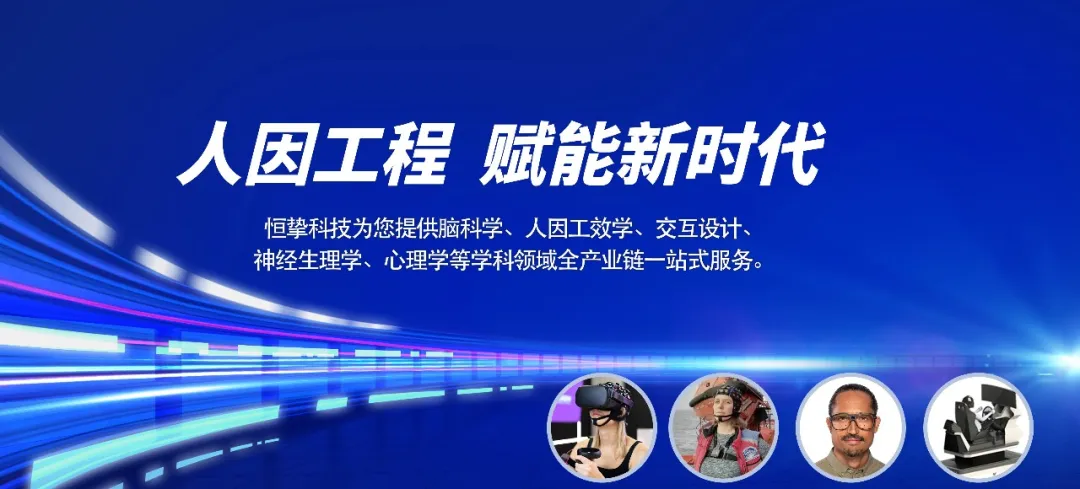


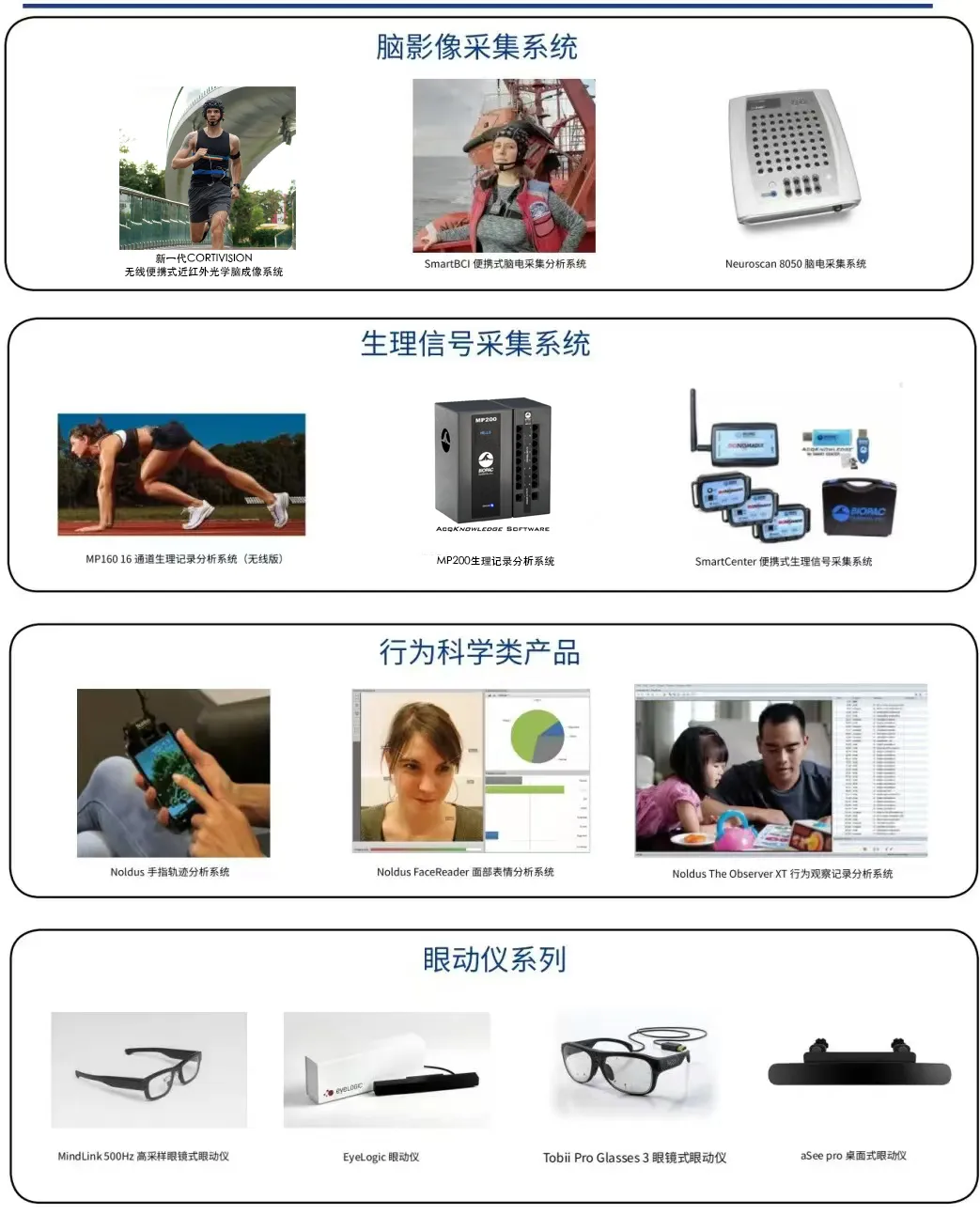





Past Recommendations197
Previous Recommendations - Catalog
Previous article.The 9th International Conference on Neurological Management and Neuroeconomics (ICNN 2024) was successfully held!














